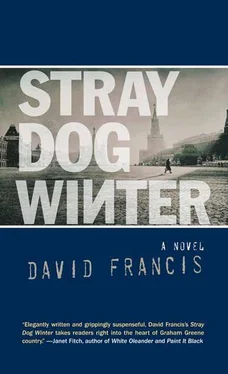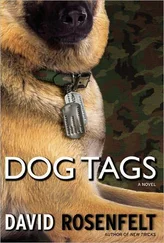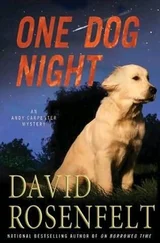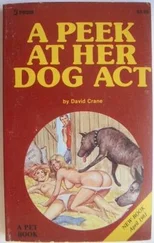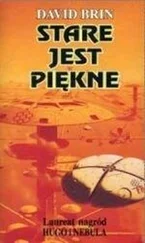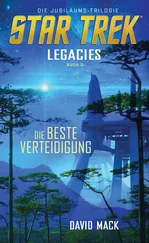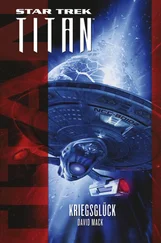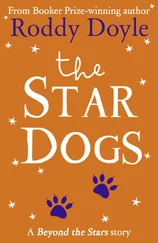Beyond Kapotnya, outside Moscow
Sunday, 7.45 pm
Darcy came to in the back of a car that drove slowly without lights, the pain in his head like a throttle and his vision taking on shapes, a driver, bull-necked in front of him, then a sickening feeling—the cigarette eyes that half turned to greet him from the passenger side: the Turk’s narrow face and pencil moustache, lit for a second by an oncoming car. A sheet of paper over the seat, being pushed by the Turk at Darcy’s face.
Today’s London Times , he said, but it wasn’t a newspaper, a page that wouldn’t quite keep still in his freezing fingers, encased in Fin’s damp suede mittens, all he had left of her. A pain that stabbed at his temples, a headline legible in a new sweep of approaching carlights. Turkish Attaché Shot in Tbilisi. A photo of a body on steps, a bloodstain on his neck. His name was Isik Yonder, said the Turk. I knew him.
Darcy squinted, trying to understand. Two unidentified suspects on a motorcycle opened fire yesterday evening outside his official residence . Darcy felt concussed and suddenly claustrophobic, cracked his window as the city blinked by, rows of apartment buildings lay up against factories, the sting of iced air; he wrapped his coat tightly, conjuring Fin, clasping Jobik on a stolen motorbike, her heels above the splashguard. How far is Tbilisi? he thought or said, he wasn’t sure, his words barely there.
Did you know the Turkish Consul-General in Melbourne was my roommate at Oxford? said the Turk. Do you know Oxford?
Darcy shook his head. He felt as if he were drowning, collapsing into the sea. An image blazed in his mind of the rodent boy dead in the snow. The sound of the tyres whispered beneath him, and the Turk snuffed a new cigarette out in the ashtray, pulled a handheld device from the dash and listened. He cast a sidelong glance at Darcy, but Darcy still didn’t answer his question, didn’t care about Oxford, if they’d been lovers at college, the consul and the consul. He blinked hard, his vision still hazy, the horror of the pistol mashed into his burn, the whoosh of the pain, and his coat and the knees of his pants wet through. He was already back on the verge of delerium. He didn’t know why the Turk hadn’t killed him too. If death would be better than this.
The car crept past a dark row of wooden houses, then a small ragged factory. Darcy focused on smoke coiling up from the ashtray, the Turk’s cigarettes like weapons. Darcy looked out into the naked woods, the black velvet dark, thought of the son-in-law slumped in the front of the Borgward.
My friend from Oxford, said the Turk. They shot him outside his home. His wife was at the door. His children, in the garden, were playing.
Darcy wanted to cup the pain in his neck in a handful of snow. He couldn’t defend any of them, Jobik and his Armenians, Fin, or the slaughters of seventy years before. Where were they taking him? He watched out as best he could: the cranes of the Southern River Terminal rose up through the night like black pterodactyls. Then Darcy turned to see out the back, the burn stinging against his collar. Your friend is with us, said the Turk. Don’t worry.
Another car rolled through the dark like a shadow, no headlights either, the broad silhouette of the general. Darcy felt him staring out, right there behind him, where he’d been all along; the memory of the anise smell and animal sweat brought on a new wave of nausea and Darcy was coughing up nothing into the sleeve of Aurelio’s coat. He’d done exactly as they’d hoped—Fin out there somewhere, en route to her secret Armenian bolt-hole.
Urgent spurts of Russian on the two-way and the Turk now pointing to the kerb. Naleva , he whispered and the driver slithered to a quiet halt. A rundown industrial zone. Silent outside, and drizzling, not even the sound of a dog. The Turk concentrating on the side mirror as the other car slid through the snow and parked in behind them.
Darcy glanced back again. Through the fan-shape of wipers, the general monitored the dark with silver binoculars and Aurelio, beside him, gazed at his own knuckles on the Lada’s steering wheel, afraid to look up. A wordless mourning now lay deep in Darcy’s heart. They’d been reduced to shadows, the two of them. As God made them.
The Turk wiped his window with a glove and stared through his own small field glasses, down an unlit space between buildings, towards where Darcy sensed the frozen fleece of the river must lie. He didn’t look at Darcy as he spoke. I would have shot you, he said, but the General Sarfin asked me no. Not yet.
Darcy crouched in the back seat, weak but somehow defiant. The Opinel knife still there, tight against his ankle. He examined the Turk’s profile, his beaky nose and tapered neck, the wolverine smile, imagined slicing with the hawk-bill blade and ripping his smile out wide across his cheeks. What are you doing with me? he asked.
Maybe we need you. Let your sister see we have you, he said, his eyes still pressed against his binoculars. Dangle you on a stick.
Darcy reached down for the knife, just to feel it. Where is she? he asked softly. But it was the bull-necked driver who turned for the first time and Darcy, his hand down by his boot in the sights of grey crystalline eyes, felt the narrow path of his life. The same snub un-Turkish face he’d left in the crowd outside the exhibition, who’d let him believe he’d got away. His fingers stiff as branches, Darcy picked up the newspaper article fallen from the seat, handed it over. The guard who’d not stopped the trolleybus near the Ploshchad Revolyutsii.
Darcy averted his eyes, gazed out into the close black verge as if he wasn’t half-paralysed with cold and fright. If there were a gunfight he’d take his chances out there—a small clump of conifers and from it another pair of eyes, glowing, the shape of a wary angular dog, wolfish, staring back. They watched each other for a moment, and Darcy thought of Laika, a stray captured down by the river, hanging in the air near the sun, exploding. Darcy could only see as far as the spindly pines, through to a factory fence where the timid dog disappeared into the immutable dark. He envisaged his own feet splayed in the blanketed gutter, his face down, silent and cold on this roadside, listening to the snow, wondering if he were dead.
He looked back again for Aurelio but the Lada was empty now, and a voice on the Turk’s handset, the receiver back up to his ear as a light flickered on in the night and spread through the dark, up the side of a rusted industrial building that stretched from the road down to a low gravel barge moored where ice had been dredged in the river. In the shadows, a tractor with a front-end loader axle-deep in muddy snow, a narrow, tyre-slushed track to a small concrete quay. A cold whiff of pine mixed with the smells in the car and Darcy’s words congealed on his tongue, an unshouted warning, as a shape appeared in the shallow-lidded helm of the barge, a figure that rose up then disappeared. Darcy imagined a hull full of bunks where Armenians hid—separatists, terrorists, avengers of distant history, Jobik waiting for Fin.
The light went off and the Turk seemed agitated, twisting in his seat, whispering to the driver in Russian. Darcy’s heart pushed at his chest. If they stormed this boat, he could run. No more conversation as two figures emerged from the corrugated building, creeping through the shadows past the loader, down towards the frozen quay, to the barge. Darcy prayed for his moment, when the Turk and his pale-eyed driver might forget him; they strained out in the other direction, waiting. A fire in Darcy’s neck that spread to the base of his skull, the distant buzz of a motor, then dim lights on the river. He eyed the door handle to be sure it wasn’t locked.
Читать дальше
